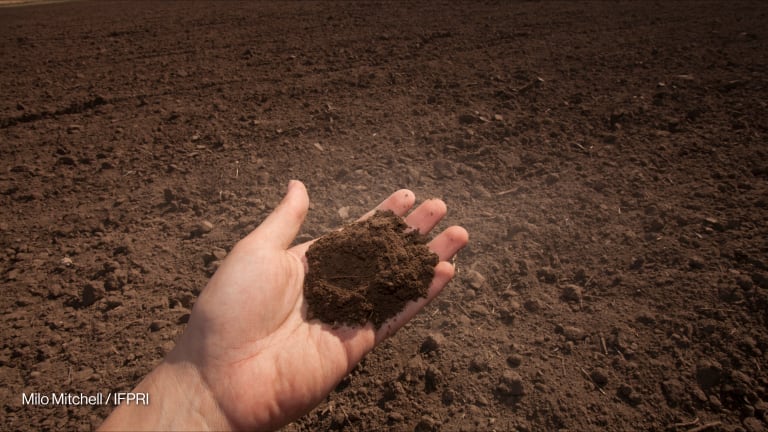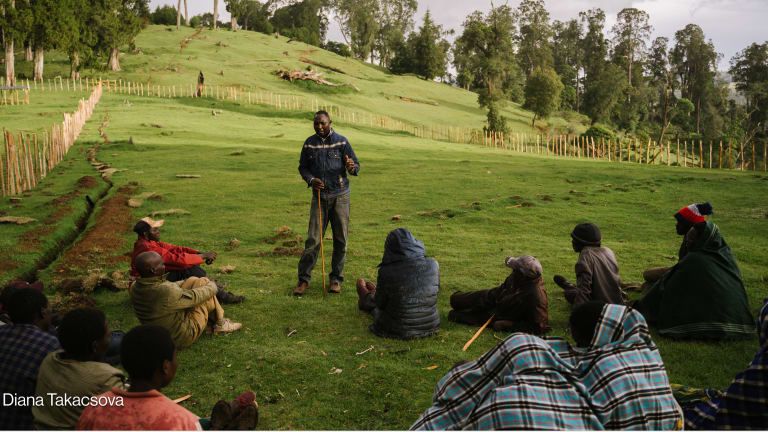
BRUSSELS — Two Belgian entrepreneurs, Louis Collinet and Nathan Clarke, have made headlines of late with a Netflix-style subscription model for offsetting carbon emissions.
The young entrepreneurs are not the first to offer that service — but they have other plans ahead for a first-of-its-kind impact fund offering annual “carbon returns.”
The pair’s Belgium-based company, Tapio, has just completed a €500,000 ($590,000) fundraising round. Their core business currently sees clients pay a monthly fee to offset their carbon emissions, which Tapio then uses to fund carbon-capture projects, largely through reforestation. For now, Tapio takes about a 10% commission.
“Our [forests] are meant to stay in the longer run and to be managed in a sustainable way.”
— Louis Collinet, co-founder, TapioIn a few years, however, they hope to become the first impact fund in the world to remunerate investors via annual carbon offset.
The idea is for Tapio to use investors’ money to buy land, likely in Europe, on which they will plant trees and implement other carbon sequestration solutions, such as regenerative agriculture. “Each year [the investors] will get a carbon return, which basically offsets their carbon emissions,” Clarke told Devex by email. After 10 years, investors will also get a financial return on exit when the land is sold.
“If we have bought land on which there was nothing at all but then we plant a forest, after 10 years we’ve got nearly a fully grown forest which generates carbon offset and, if you decide to sell it at that moment, the value of your land could be (depending on geo location of solutions) two times higher,” Clarke argued. The approach relies on the carbon-offset market booming over the next decade, and Clarke predicts that it will in order to reach the Paris Agreement climate goals.
Gilles Dufrasne, policy officer at Carbon Market Watch, had reservations about the idea, however, telling Devex that too often, private sector initiatives relying on offsets allow companies to use these to justify unsustainable consumption.
Dufrasne said it is also hard to measure the exact carbon content of a forest and its evolution on a year-by-year basis and there is a risk of damaging biodiversity.
Can 'nature-based solutions' be more than a buzzword?
"Nature-based solutions" have been hailed as a vital part of the battle against climate change, but some critics warn the rapid rise of this agenda risks harming local communities and deflecting attention away from the need to rapidly decarbonize the global economy.
Collinet responded that Tapio’s solutions would be certified to the highest standard available and that the firm also plans to use satellite imagery to ensure the offsets are genuine.
Dufrasne’s other concern was permanence. “Trees do not magically disintegrate carbon,” he wrote. “They use it to grow, and store it. When the tree dies, the carbon is released. Hence carbon offsets from forestry projects do not reduce the overall concentration of GHG [greenhouse gases] in the atmosphere over the medium/long-term, they simply postpone emissions.”
Collinet said that though the definition of “permanent” varies depending on which standard is used, in any event a forest cannot simply be cut down after 20 years in Europe.
“Legally speaking you have to follow [a] management scheme and this scheme [follows] the forest even when sold,” Collinet wrote. “Our [forests] are meant to stay in the longer run and to be managed in a sustainable way.”








